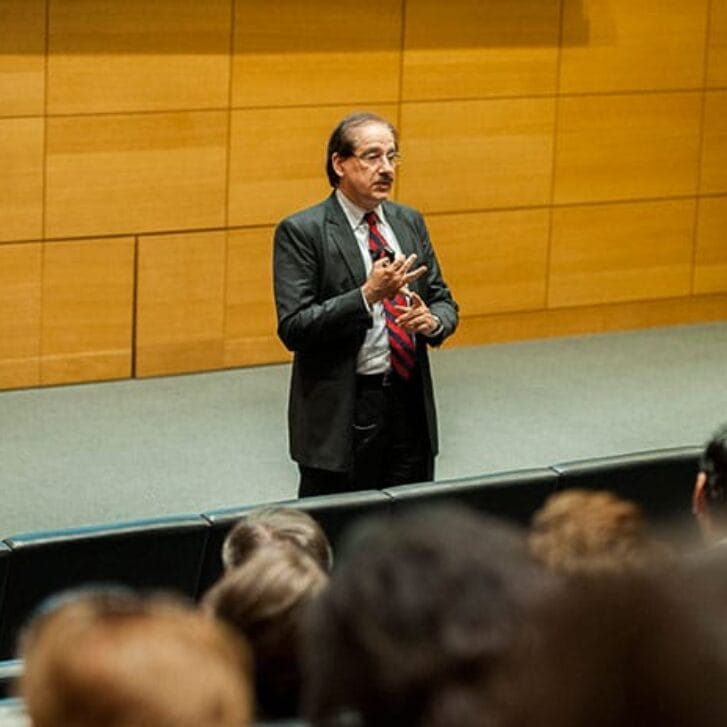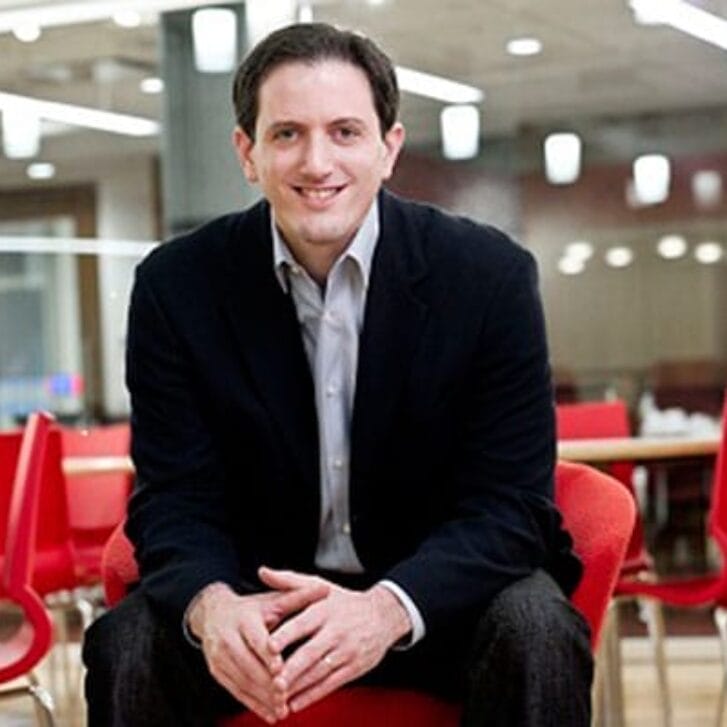When you listen to Jonathan Haidt speak, it is hard to suppress the pessimism for humanity. After all, as Stern’s Thomas Cooley Professor of Ethical Leadership explains it, sociologically speaking humans are 90 percent chimps and 10 percent bees – but 100 percent selfish. It’s a matter of being selfish individually or as a group, respectively. Humans do both well.
At the heart of what Haidt’s lecture during his Authors@Wharton event in March, and in his book The Righteous Mind, is Hume’s belief in “reason as servant.”

… and 10 percent like bees.
“We cheat and lie like crazy … up to the point we can lie to ourselves that there is some justification in doing this,” he told an audience of Wharton students.
To the MBA students in attendance, Haidt gave a compliment, albeit a backhanded one. He praised the MBA “problem-solving mindset” that can deduce “what’s the optimal solution for their problem.” Yet, the former University of Virginia psychology professor continued, the MBA mindset is not moralistic. In fact, once it learns the rules and laws of a given situation, that knowledge removes moral concerns.
The logical next question is: Can we teach MBAs to be ethical and moral? Haidt’s answer was no … but wait, there’s hope. He feels that we can teach MBAs to be better leaders and designers of ethical systems.
To be a good leader, part of the process is designing checks on our ourselves. He recommended not trusting our own reasoning but only our thoughts to justify our selfish incentives. Avoid conflicts of interest at all costs because no matter how small they may be (even someone buying you a cup of coffee), they are proven to influence decision-making. Finally, leaders should check their reasoning with others.
The steps to designing an ethical system, when diluted to their simplest form, include:
• Understand that different organizations can have different ethical systems based on their cultures.

Jonathan Haidt
• Choose a system wisely; once you establish a system, employees will act as if the system is the only set of rules they must follow.
• Build a strong sense of “groupishness.” That comes back to humans being 10 percent bees. We love to work as teams, promoting group interests against another group’s interests.
To end on an optimistic note, it is possible to carve a “path” for ourselves and others to channel our selfish and groupish urges toward constructive pursuits and ensure that our ethical systems kick in when moral concerns come into play.
The Authors@Wharton speaker series is sponsored by the Wharton Leadership Program.
Editor’s note: Learn about your own morality, ethics and values by participating in YourMorals.org, a scientific survey being carried out by Haidt and others. Then listen to Haidt speak at TED about how our moral “taste buds” separate us politically and religiously.


























